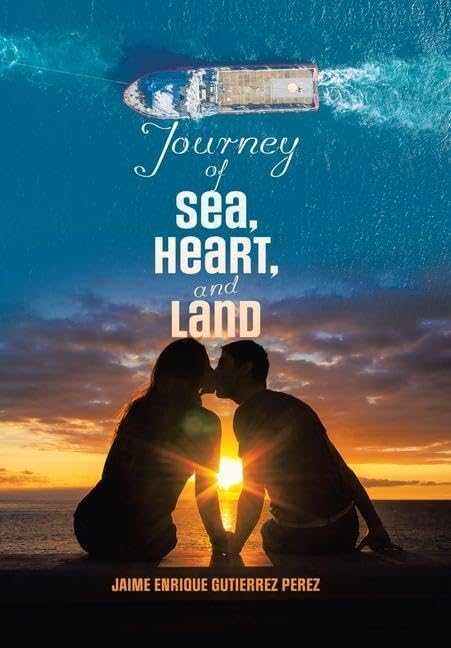Journey of Sea, Heart, and Land
In the epic novel Journey of Sea, Heart, and Land, intertwined people are encouraged to embrace a future that “exists in the present.”
In Jaime Enrique Gutierrez Perez’s coming-of-age novel Journey of Sea, Heart, and Land, the lives of a ship captain and his new cabin boy parallel and inform each other.
Shortly after Elias loses his father to a shark attack, his mother disappears. He is raised by his mother’s friend on Colombia’s San Andres Island. In the shipyards, he meets Ludwig, a captain who is Elias’s adopted father’s mentor. He decides to join Ludwig’s crew.
Elias falls in love with Ludwig’s adopted niece, Helena—until he meets her Finnish friend and sports fanatic, Leena. The three form a tight but tenuous bond. Listening to tales of Ludwig’s revolutionary past in Cuba as they travel the world, they discern just, passionate ways to contribute to the world together.
The prose is dominated by characters’ soul-searching: Elias recounts his sheltered upbringing and enchantment with worldly Ludwig and Helena; he discusses his attraction the sea and his desire to avenge his father’s death. Helena is zealous about asking her uncle about his past, hoping to understand her origins; and when it comes to her own interests, Leena is tenacious. The trio goes on dream-quests together, resulting in a musing pace; they meet wise people in Finland, Italy, and Turkey whose words flesh out their adolescent aspirations.
But there are indulgences in this triple bildungsroman, too: each port holds the potential for idyllic spots for Elias to take Helena and Leena on dates. They share secrets with one another and are forgiving and supportive, but their anxieties consume considerable space. Their youthful thoughts distract from the romantic splendors of cathedrals and the Northern Lights. In time, Elias’s affections shift, after which the story becomes consumed with sexual highs and lows, detailed in sometimes graphic terms. Lust threatens the trio’s unity, but it’s a drawn-out conflict that’s marked by repetitive fights.
Set alongside conflicts between Ludwig and his revolutionary comrades, and between communists and fascists, the book’s protracted love-triangle squabbles are too silly to sustain interest. Still, even Ludwig’s story is halted in service of these relational issues. A humble hero who performs heroic acts—saving Leena and protecting a stranger from assailants—he is ultimately underdeveloped. Pronoun errors undermine the prose, as do untranslated lines in other languages.
In the epic novel Journey of Sea, Heart, and Land, intertwined people are encouraged to embrace a future that “exists in the present.”
Reviewed by
Mari Carlson
Disclosure: This article is not an endorsement, but a review. The publisher of this book provided free copies of the book and paid a small fee to have their book reviewed by a professional reviewer. Foreword Reviews and Clarion Reviews make no guarantee that the publisher will receive a positive review. Foreword Magazine, Inc. is disclosing this in accordance with the Federal Trade Commission’s 16 CFR, Part 255.

